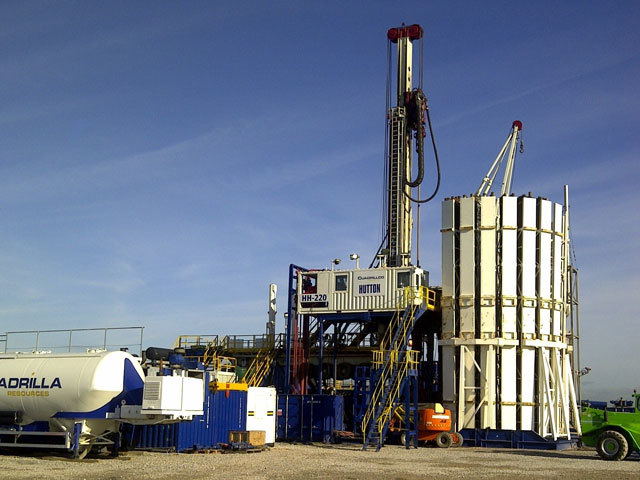
Energy service businesses in the north-east face tough competition for work as the onshore shale gas industry takes off in the UK.
Firms providing support services to offshore oil and gas are well-placed to work with the onshore sector, however, operators could face pressure to use companies local to drilling sites rather than those from further afield.
That was the warning which came from Andrew Austin, chief executive at onshore energy firm IGas, at a business gathering in Aberdeen yesterday.
Mr Austin said: “This presents a real challenge for Scotland and particularly Aberdeen.
“I think there is going to be a tension there and it’s going to be a challenge. There is going to be a lot of pressure for that money to be spent locally, but a lot of it is going to be about cost.”
Onshore shale gas has huge potential in the UK – the British Geological Survey estimates that currently licensed sites could produce 1,300trillion cubic feet of gas.
IGas currently operates about 110 sites across 30 different fields producing 3,000 barrels of oil equivalent per day, said Mr Austin.
He added: “We have a high degree of confidence there is an awful lot of gas there, and what we now need to demonstrate is that we can get it out of the ground economically.”
UK Onshore Operators Group chief executive Ken Cronin said up to 40 exploration wells would be drilled in the next two to three years as the industry develops.
Onshore shale from around 100 sites could halve the country’s gas import dependency, Mr Cronin told delegates at the Oil and Gas UK breakfast seminar at Aberdeen Exhibition and Conference Centre.
“We can produce 100 sites in the UK of two hectares each,” he said, adding: “These sites represent 0.01% of the UK land mass. We can do this with a very small footprint.”
Onshore gas production offered an economic package of jobs, tax revenues, energy security and reduced import reliance, claimed Mr Cronin.
“If we produce enough in this country and in Europe, it will have an impact on energy prices,” he said.
But Friends of the Earth Scotland lead energy campaigner Mary Church said unconventional gas was unproven, unsafe and unnecessary. The organisation wanted a ban on all unconventional gas extraction because of the climate and local environmental and health risks associated with the industry, she added.
Meanwhile anti-fracking protests over the summer were nothing but an alternative Glastonbury and a summer jamboree, according to the boss of an onshore energy firm.
Onshore shale gas extraction came under the media spotlight earlier this year when nearly 2,000 protesters descended on a West Sussex village to demonstrate against fracking.
Among the protesters outside Cuadrilla’s exploration site in Balcombe were Green Party MP Caroline Lucas and fashion designer Dame Vivienne Westwood.
The company had been carrying out test drilling at the site.
The protests failed to halt further exploration however and three other wells were drilled during the same two-month period of protest, while a further five planning consents were granted across the UK, IGas chief executive Andrew Austin said yesterday.
“It was a bit of an alternative Glastonbury rather than a complaint about the oil and gas industry,” he added.
UK Onshore Operators Group chief executive Ken Cronin claimed many of the protesters were professional activists, rather than those dedicated to the Balcombe cause.
Balcombe resident Kathryn McWhirter said Mr Cronin and Mr Austin were talking “absolute nonsense” and the majority of the protesters had been there in support of the anti-fracking movement. Residents were still against Caudrilla’s plans and waiting for the company’s latest planning application to West Sussex County Council to become available so they could start lodging formal objections, she added.